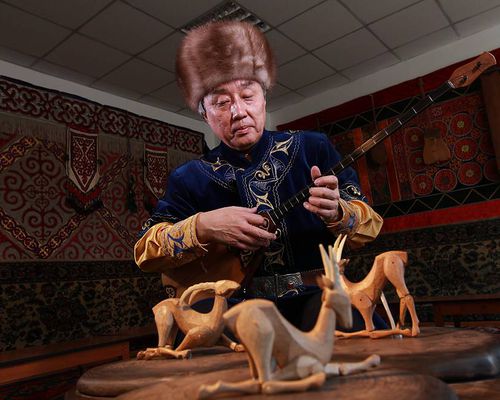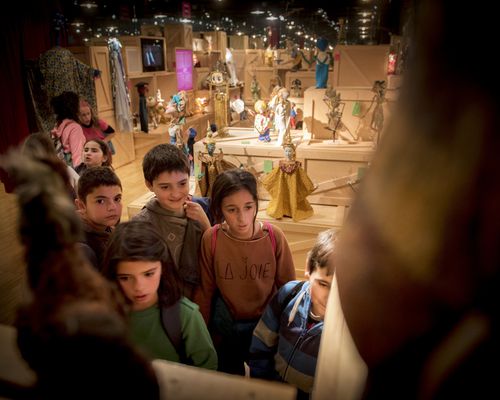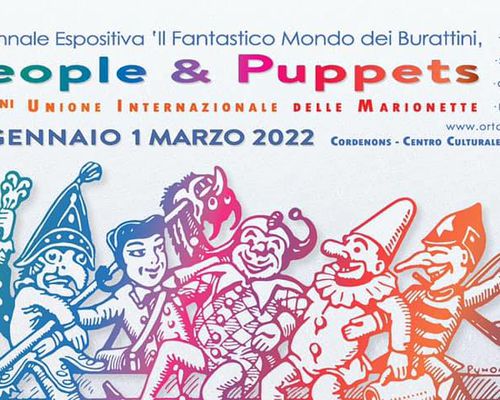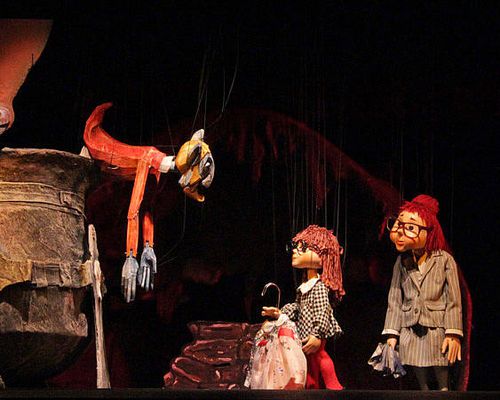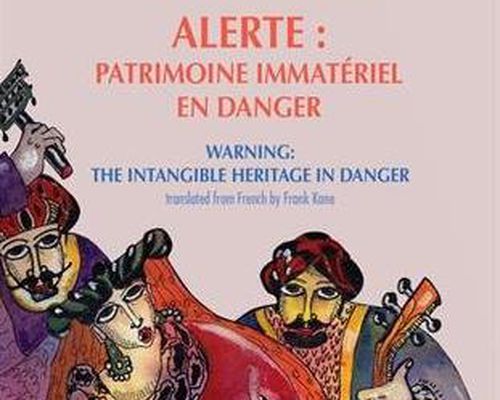Puppet Theater is almost as old as humanity itself, which is why the Heritage Commission faces a huge and important challenge. There are countries in which the Art of Puppet is considered as it deserves, is preserved and studied as such. In others, however, many of its artistic manifestations and traditions have disappeared. UNIMA, as the only world Association whose scope of action is this ancestral art, has the obligation to ensure the cataloging and subsequent preservation of all those forms of puppetry that can be considered as heritage. This is what unites the members of this commission: the concern for this preservation and the desire to do something for this rich puppetry heritage.
To achieve this objective, the members of the commission want to collaborate closely with the Geographical Commissions, Communication Commission, Youth Commission and the National Centers, because without them we will not be able to achieve our goal, which, of course, we intend to do in the long term.
Objectives
Our committee has three highly interrelated but well differentiated parts: Heritage, Museums and Documentation Centers.
HERITAGE
- Detection, in close collaboration with the Geographical Commissions and the National Centers, of those forms of puppets that are considered heritage, understanding as heritage the UNESCO definition: Cultural heritage is not limited to monuments and collections of objects, but also includes traditions or living expressions inherited from our ancestors and transmitted to our descendants, such as oral traditions, performing arts; social uses, rituals, festive events; knowledge and practices related to nature and the universe; knowledge and techniques linked to traditional crafts. Despite its fragility, cultural heritage is an important factor in maintaining cultural diversity in the face of increasing globalization. (…) Knowledge and understanding of cultural heritage by different communities contributes to dialogue between cultures and promotes respect for other forms of life. Cultural heritage is not valued exclusively as a cultural asset, on a comparative basis, because of its uniqueness or exceptional value. It flourishes in communities and depends on those whose knowledge of traditions, techniques and customs is passed on to the rest of the community, from generation to generation, or to other communities. Cultural heritage can only be so if it is recognized as such by the communities, groups or individuals that create, maintain and transmit it. Without this recognition, no one can decide for them that a certain expression or use is part of their heritage.
- Making a detailed list of the forms of Puppets that can be considered as heritage.
- Collaboration with the National Centers to initiate, if necessary, the procedures before the pertinent institutions for the safeguarding of those forms of puppets that are in risk of disappearance.
- Promoting the initiation of actions for the declaration of Oral and Intangible Heritage of Humanity by UNESCO of those forms of puppets that merit it.
- Promoting the graphic documentation of those forms of puppets at risk of disappearance, even if it is in a “rudimentary” way, since that is always better than not having any testimony.
- Promoting the dedication of one of the European Heritage Days to Puppetry.
- Launching certificates of recognition to reward those young and old who are doing work in favor of heritage.
MUSEUMS
- To create a complete directory of Puppet Museums, Museums that contain puppets, puppet collections, etc.
- Carrying out the necessary steps for the ICOM (International Council of Museums) to open a section dedicated to Puppet Museums.
- Encouraging Puppet Museums to celebrate the International Museum Day and the World Puppetry Day.
- Promoting exchanges and collaborations between Puppet Museums around the world.
- To give continuity to the Exhibition of the 90 years of UNIMA in a lighter version that can be rotated outside of Europe.
DOCUMENTATION CENTERS
- To create a directory of Puppet Documentation Centers.
- Analyzing the problems of incompatibilities in the databases between the different Documentation Centers, since they complicate collaborations.
- Continue UNIMA’s collaboration with PAM. We must not forget that UNIMA was a founding member of PAM.
- Study the convenience of starting an encyclopedia focused on the traditions and rites of puppet theater in the world.
- Study the publications on puppet traditions in the world.
- Optimize existing databases and directories.
- To analyze the problems of digital archives for the future.
- Study the way to encourage young people to dedicate themselves to the history and research of the art of puppetry, since there is currently an almost total lack of vocations.
Activities
To launch the forms, collect and analyze the information received and draw up the directories.
In a second time, we will see what steps to take according to the information received.

